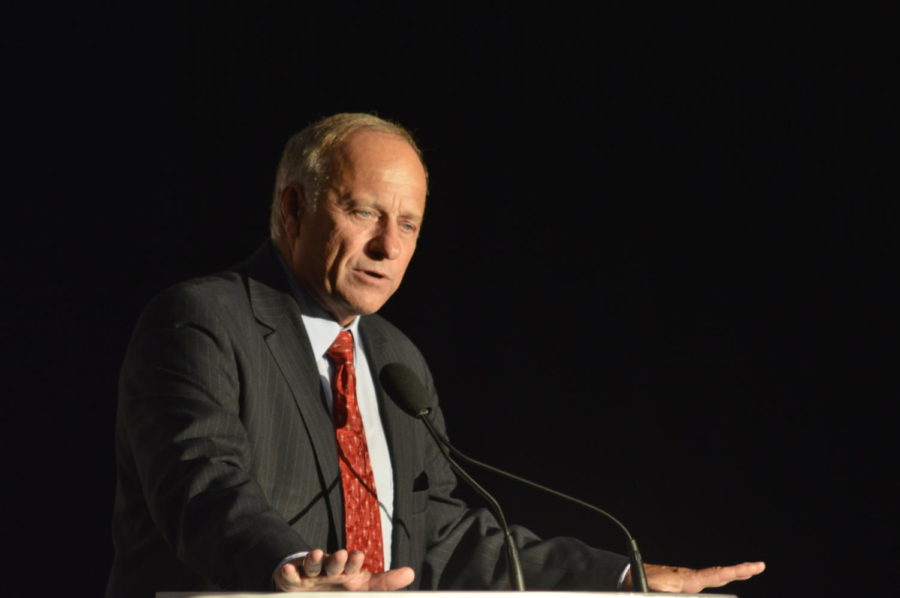Connor: How newsrooms protected Steve King
Charlie Coffey/Iowa State Daily
Rep. Steve King speaking at the Faith and Freedom Dinner on Sept. 19.
January 15, 2019
Too many times the news industry has sidestepped the use of adjectives in writing. It’s something taught in almost every entry-level journalism class: Be objective.
Yet this hard line has led to some creative ways to imply something instead of actually calling it what it is. For example, ever read a blatantly racist statement regarded as “racially charged”? If you read the news regularly, the answer should be yes because it happens a lot.
Many newsrooms, at both a college and professional level, are predominately white. It’s one of the biggest challenges the news industry faces.
In a 2017 survey by the American Society of News Editors, minorities comprised 16.55 percent of employees reported by all newsrooms. Women made up more than a third of newsroom employees overall, 39.1 percent in 2017, with a higher number employed at online-only websites than at newspapers.
There needs to be more people of color, there needs to be more women, there needs to be more people in the LGBTQ+ community. Bottom line, there needs to be more representation of people from a variety of diverse backgrounds.
What this lack of representation often leads to is the portrayal of how a story gets framed, which can often be inaccurate or missing the mark when it comes to the context or nuance of a specific issue.
I say all this to reinforce that white newsrooms protected Steve King, the nine-term congressman from Iowa’s 4th District who has had a long history of “racially charged” remarks.
Instead of calling comments made by King racist, they have been referred to as everything but by the mainstream media for the better part of a decade.
It wasn’t until a New York Times interview Thursday, where King said, “White nationalist, white supremacist, Western civilization — how did that language become offensive?” that Republicans and the media could no longer brush off King’s comments or make up an excuse for his ideologies.
So the question I ask is, “Why did it take so long?”
I’m not inferring that white newsrooms protected King because they agree with his ideologies or were driving a hidden agenda rooted in white supremacy, but that they did it in the name of “objectivity.”
Journalism is rooted in truth. Reporters cannot, nor should not, take a side. It’s why in 2016 when The New York Times decided to refer to President Donald Trump’s ‘birther’ rumor as a lie, it became a very big deal in the news industry — to call it a lie means for there to be intent, which is something that is not always provable.
So can we, as journalists, officially regard Steve King’s past and present remarks as racist? Yes, and we should probably start doing more of it in all its shapes and forms, predominately white newsrooms or not.







